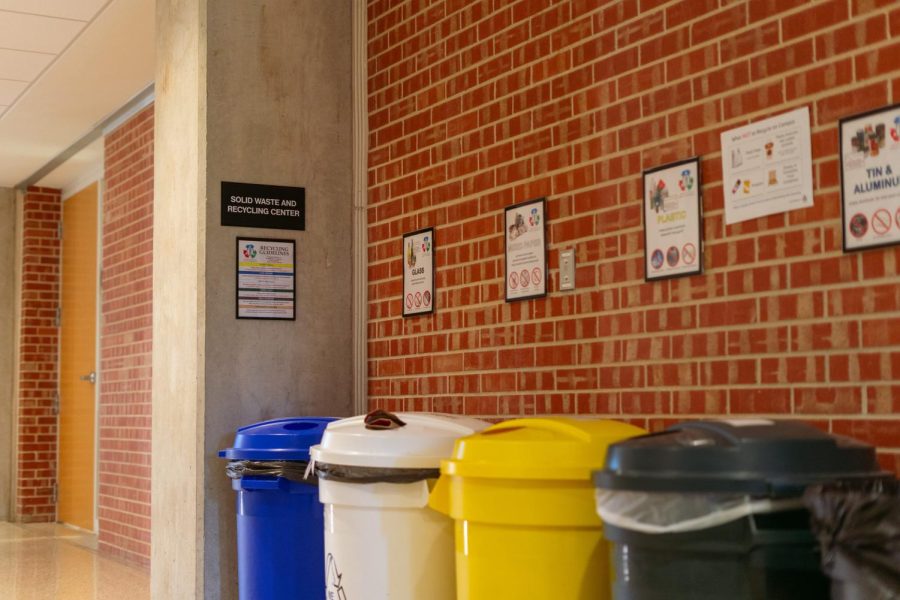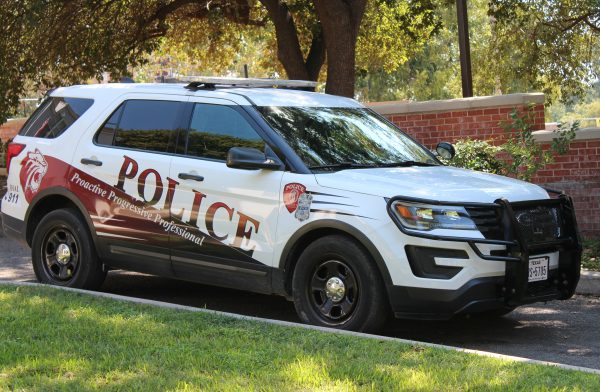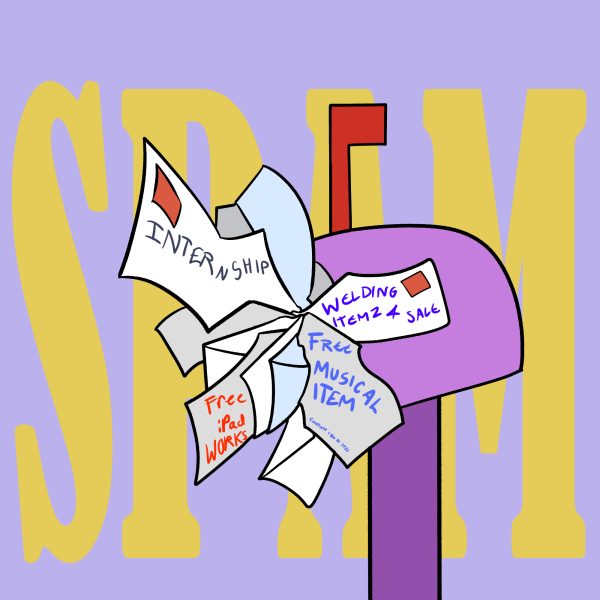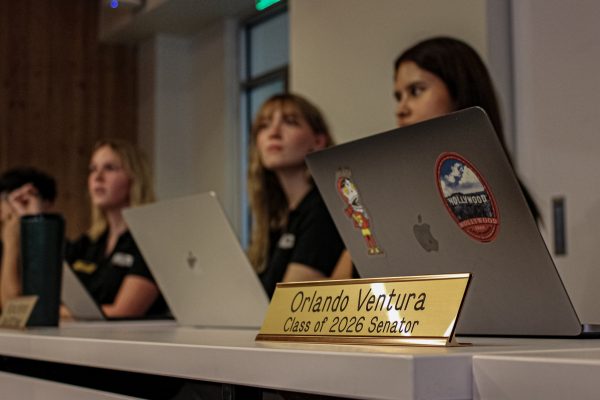EcoAllies take issue with CityVista recycling situation
Trinity’s hands-off approach to recycling leads to confusion at the school’s apartments
Various types of waste can be disposed of in these bins around campus.
Recycling bins and signage adorning the Trinity campus in residence halls and academic buildings is one way the university adheres to recycling practices. Students living in on-campus residence halls have small recycling bins provided in their dorms. Yet, not all areas on campus receive the same amount of recycling support as others do.
Residents at City Vista, an off-campus housing option for upperclassmen, do not receive a recycling bin when they move in. Audrey Germany, a junior environmental science and economics double major and vice president of EcoAllies, wishes for change.
“[Recycling at City Vista] is not as good as it is in the residence halls. If you don’t have a bin, recycling becomes inconvenient to do,” Germany said.
According to the sustainability initiatives page on the Trinity University website, the campus uses a source-separated recycling system in tandem with student education. The Trinity recycling information posters which inform students of “accepted recyclable items” are displayed near recycling bins in all locations on campus to minimize students’ confusion when sorting their waste.
Due to the source-separated recycling system at Trinity, what gets recycled varies from student to student.
“Recycling starts with the individual. Knowing what can be recycled and disposing of it properly makes a difference,” Ernesto Gonzalez, associate director of facilities services, wrote in an email.
Trinity’s custodial contractor Waste Management (WM) is responsible for collecting the waste that has been accrued in the buildings on campus. According to Gonzalez, plastics, aluminum and glass go into the large purple recycling compactor near the Physical Plant. Collected paper gets put into totters (a two-wheel standing bin often seen in homes), while all cardboard materials are taken to the cardboard baler (a machine that compresses the cardboard for ease of transportation) and afterward proceed to the WM recycling center.
At City Vista, recycling circumstances differ. According to Germany, residents put their recyclables in a bag outside their door. Residents sort the recycling by cardboard and other items (plastic, paper) and Able Building Maintenance (ABM) workers pick up recycling as well as garbage. Recycling is then taken to City Vista totters which are collected once a week by WM.
Although residents at City Vista don’t have to source all of their recycling, leaving collections of waste and recycling for someone else to accomplish can be tricky if the waste isn’t picked up on time, or if residents don’t put their waste outside their door. Not knowing the proper recycling procedure is a common problem at City Vista because tenants don’t have a designated recycling bin given to them at move-in.
In residence halls, students have to recycle at the source, which can lead to improper sorting of waste.
“It’s an ongoing struggle. This is not new, this isn’t different than what we’ve seen before,” Rachel Boaz Toppel, assistant director for residential education, said.
According to Germany, the current systems in place for recycling are not as robust as they ought to be.
“Recycling could be improved. I’m hoping they’ll contract out to a different recycling and trash pickup partner and that’ll make recycling more efficient and better for the planet than Waste Management does,” Germany said.
According to Toppel, awareness and education promote accurate recycling on campus. If more people are aware of the need to dispose of their recyclables properly, they will try to sort waste properly.
“Telling people what to do will only get us so far. Students have to be willing to participate,” Toppel said.

Hi! My name is Monica Martinez (she/her), and I’m a Junior human resource management and communication double major. I am a news reporter for the Trinitonian...

My name is Sam (he/him) and I'm a photographer here with the Trinitonian. I'm a senior Communications and German double major from Austin, Texas, and...







